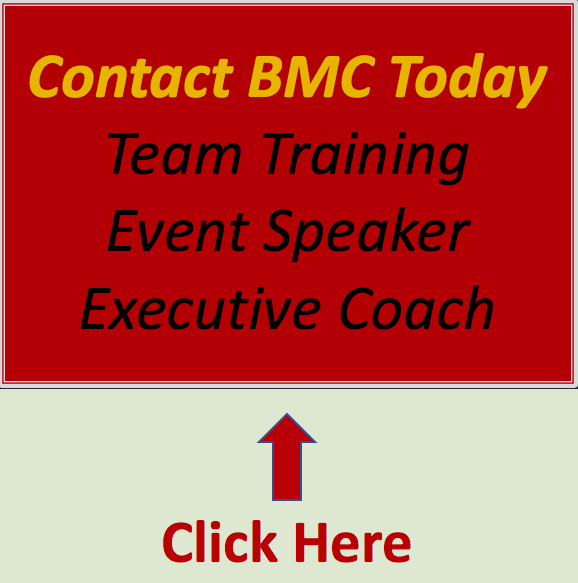When In Conflict, Be A Good Listener: A Step-by-Step Approach
/Are you a good listener in a conflict situation or do you become a boxer? Sorry - I couldn’t resist the fun play of words and the image.
Being a good listener when in conflict is one of the key elements of having win-win conversations. Thankfully, there are things you can do to be a good listener and develop a winning communication style.
Listener or Boxer? Which are you?
One of the most productive things you can do is help the other person trust your intentions - that you are there to understand their thoughts, feelings and needs. Another thing a good listener does is stay away from judging anyone, laying blame or letting your triggers (strong emotions), get the best of you.
Once you have their trust, gathering facts about what happened and why will be much more fruitful. But, this is still not as easy as it sounds. To help you to focus on what your speaker is saying and have productive conversations, I recommend the following step-by-step process:
Have a plan. Have an idea what success may look like for you and the other person (realizing you both see the world in very different ways.
Pause. Take a moment to reflect and confirm this is the right thing to do.
Turn off your smartphone / computer.
Breathe calmly. It’s easy for us to stop breathing during a difficult conversation.
Notice what is going on for you - and for them. Also notice your surroundings and distractions that may negatively impact the conversation.
Show interest. “I have something important I’d like to share and I’m looking forward to hearing your thoughts.”
Don’t interrupt them when they are speaking:
If you have ideas and/or questions… make a note of them.
Stay focused on what they are saying:
Don’t judge or assume
Manage your Triggers
Don’t think about what you will say
Respond to what they are doing, saying, feeling, needing and believing… but never React.
Validate what you think they said / feel / need / believe: “What I’m hearing you say is you feel members of the team interpret our corporate values inconsistently.”
Give them space / encouragement to correct what you said in step #10 by pausing and letting them respond.
Check in to see if there is more: “This is helpful. Are there other challenges that are impacting communication, our corporate values or quality?”
If they have more information or challenges to share, go back to step #7 to encourage them.
Thank the other person or people for their contribution
This step-by-step process has many benefits to help you be a great listener. The most obvious is that encourages the other person do most of the talking which helps you build trust and understanding; people will trust you less if you do most of the talking. Having the other person do most of the talking is also beneficial because it may be the first time they’ve spoken aloud about the situation. Speaking aloud may help them gain more understanding and take some responsibility. They may even begin resolving the conflict themselves.
Conclusion:
Becoming a good listener isn’t easy. It doesn’t mean sitting quietly until the other person stops talking, and being a good listener also doesn’t mean agreeing with what they are saying. In fact I would warn you against agreeing to much because later in the day they may subconsciously apply your agreement to the whole conversation. Recap: Understanding is good, agreeing is not.
One last thing; be careful if you find yourself giving advice, sharing your opinion or making suggestions. If you do (or even want to), it is a sign you are not listening.
BONUS: What Are Triggers?
A trigger is any positive or negative event that evokes a deep emotional response. One of the greatest challenges when participating in a difficult conversation is to manage your triggers and try to predict (and avoid), the triggers of the other peoples involved. When negatively triggered we may feel:
Overwhelmed
Angry
Frustrated
Disappointed
Embarrassed
BONUS: Effective Open Ended Questions
“Can you tell me more about that?”
“What happened next?”
“How did you feel?”
“That’s interesting, can you help me better understand by explaining that further?”
“What is it like to do that?”
“Please… tell me more” (not a question… but effective.
“How can we measure that?”
“What does that mean?”
“What are your expectations?”
“How does that process work when… [there are two versus three people]?”
“What procedures did you use to determine the customers needs?
Thank you for reading my article about why listening is important and how to listen well.
Bruce
About Bruce and Bruce Mayhew Consulting.
Corporate trainer Bruce Mayhew (of BMC) delivers customized Difficult Conversation training in Toronto and across Canada. We specialize in Leadership, Communication and other soft skills training solutions.
BMC helps your greatest assets think productive and be productive.
Bruce is an experienced motivational speaker in Toronto and has inspired audiences across Canada and within the USA and the UK. Bruce works hard to always make sure your training event, conference, retreat, or annual general meeting is a success.




